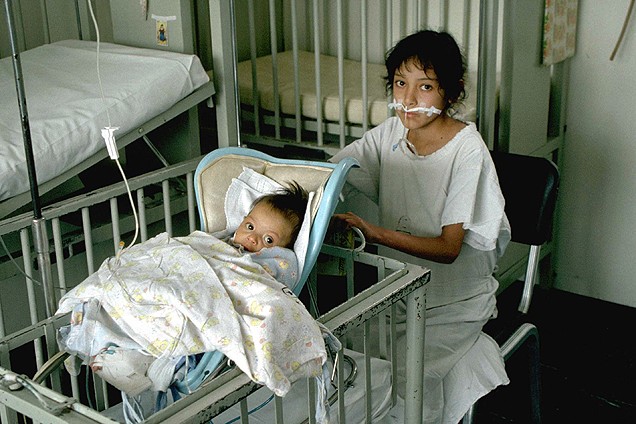Facing a serious illness is challenging, not just physically, but emotionally, socially, and even spiritually. Beyond treating the disease itself, a crucial aspect of healthcare focuses on improving the quality of life for both patients and their families facing these challenges. This is where palliative care programs come into play. But What Is A Palliative Care Program exactly, and how does it differ from other medical approaches?
A palliative care program is a holistic, patient-centered approach to care for individuals of any age who are living with serious illnesses. It’s not just about end-of-life care; palliative care is beneficial at any stage of a serious illness, from diagnosis onwards. The primary goal of a palliative care program is to relieve suffering and improve quality of life for patients and their families by addressing a wide range of needs. This comprehensive support is delivered by a multidisciplinary team, ensuring that patients receive care that is tailored to their unique circumstances and preferences.
Core Components of a Palliative Care Program
To truly understand what a palliative care program entails, it’s essential to look at its key components:
- Team-Based Approach: Palliative care is delivered by a team of professionals with diverse expertise. This typically includes doctors, nurses, social workers, counselors, and sometimes chaplains or other specialists. This interdisciplinary team works collaboratively with the patient’s primary care physician and other specialists to provide coordinated care.
- Holistic Care: A palliative care program looks beyond the physical symptoms of the illness. It addresses the patient’s physical, emotional, social, and spiritual needs. This means managing pain and other distressing symptoms, but also providing emotional and psychological support, helping patients navigate complex medical decisions, and offering spiritual care if desired.
- Focus on Quality of Life: The central aim of palliative care is to enhance the quality of life for patients and their families. This involves helping patients live as comfortably and fully as possible, according to their own values and preferences. It’s about maximizing well-being and helping patients maintain their dignity and independence throughout their illness journey.
- Support for Patients and Caregivers: Palliative care recognizes that serious illness impacts not only the patient but also their loved ones. Programs extend support to caregivers, offering education, emotional support, and practical assistance to help them cope with the challenges of caregiving and bereavement.
 children-palliative-care-jpg
children-palliative-care-jpg
Who Benefits from a Palliative Care Program?
Palliative care is not limited to any specific disease. It is beneficial for anyone, from children to the elderly, living with a serious illness. While often associated with cancer, palliative care programs are crucial for a wide range of conditions, including:
- Cardiovascular diseases
- Cancer
- Chronic respiratory diseases
- AIDS
- Diabetes
- Kidney failure
- Chronic liver disease
- Multiple sclerosis
- Parkinson’s disease
- Dementia
- Congenital anomalies
Patients with these and many other serious illnesses often experience distressing symptoms such as pain and difficulty breathing. Palliative care programs are expertly designed to manage these symptoms effectively, improving comfort and overall well-being. For example, pain management, including the appropriate use of opioid medications, is a critical aspect of palliative care, ensuring patients are not needlessly suffering.
The Importance of Palliative Care Programs: A Human Right and Ethical Imperative
Palliative care is more than just good medical practice; it is recognized as a fundamental human right. The World Health Organization (WHO) explicitly acknowledges palliative care as part of the human right to health. Everyone, regardless of their condition or location, deserves access to care that alleviates suffering and upholds their dignity.
Providing palliative care is also considered an ethical duty for healthcare professionals. Relieving suffering, controlling symptoms early, and respecting a person’s dignity are core ethical principles in medicine, and palliative care programs are structured to uphold these principles. Furthermore, studies have shown that early integration of palliative care not only improves the quality of life for patients but can also lead to reduced hospitalizations and more efficient use of healthcare resources.
Addressing the Global Gap in Palliative Care Access
Despite its recognized importance, access to palliative care programs remains insufficient worldwide. Millions of people in need, particularly in low- and middle-income countries, lack access to these essential services. Barriers to access are multifaceted and include:
- Lack of National Policy Integration: Many national health policies and systems fail to include palliative care as a standard component of healthcare.
- Limited Training for Healthcare Professionals: Education and training in palliative care are often inadequate or non-existent for healthcare providers.
- Inadequate Access to Pain Relief Medications: Restrictive regulations and misconceptions surrounding opioid medications hinder access to essential pain relief for many patients globally.
- Lack of Awareness and Misconceptions: Among policymakers, healthcare professionals, and the public, there is often a lack of understanding about what a palliative care program is and the broad benefits it offers. Misconceptions, such as believing palliative care is only for cancer patients or those in the final stages of life, further limit its utilization.
Strengthening Palliative Care Programs: A Call to Action
To bridge the gap in palliative care access, countries and healthcare systems must take proactive steps to integrate and strengthen these programs. Key actions include:
- Integrating Palliative Care into Health Systems: National health policies should incorporate palliative care services at all levels of care, ensuring sustainable funding and integration into existing healthcare structures.
- Expanding Human Resources through Training: Investing in training and education for healthcare professionals across all disciplines is crucial. Palliative care principles should be embedded in core curricula, and ongoing training opportunities should be provided to existing professionals and community volunteers.
- Ensuring Access to Essential Medicines: Medicines policies must guarantee the availability of essential medications for symptom management, particularly opioid analgesics for pain and respiratory distress.
- Promoting Early Integration: Palliative care programs are most effective when initiated early in the course of a serious illness, working alongside disease-directed treatments.
- Embracing Universal Health Coverage: Palliative care should be considered a basic health service accessible to all, regardless of income, disease, or age, aligning with the principles of universal health coverage.
The WHO continues to play a vital role in advocating for and supporting the global expansion of palliative care. Through guidelines, resources, and advocacy, the WHO is working to ensure that palliative care programs become an integral part of healthcare systems worldwide, fulfilling the right of every individual to receive compassionate and comprehensive care in the face of serious illness. Understanding what a palliative care program is and advocating for its wider availability is a collective responsibility, crucial for building healthcare systems that truly prioritize patient well-being and dignity.
